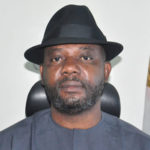A coalition of Civil Society Organizations under the aegis of Nigeria Civil Society Situation Room (Situation Room) on Monday applauded the activities of the Independent National Electoral Commission (INEC) during the just concluded Osun State Governorship election.
The CSOs in its final report obtained by Tribune Online averred that the Commission showed a marked improvement in INEC’s election administration during the exercise observed by its Partners and Networks across the 30 Local Government Councils of Osun State, including deployment of materials and personnel, early commencement of polls, quick upload of election results on the INEC Result Viewing (IReV) portal.
On the transmission of the election results, the CSOs observed that INEC’s IReV portal went live on time; 99.4% of the results were transmitted on the INEC IReV portal at 11 pm, adding that the quick upload of results continues to improve and makes the collation process more transparent.
They further maintained that there was also a remarkable improvement in the functionality of the BVAS compared to the recently conducted elections in Anambra State, the F.C.T Area Council elections and the Ekiti State Governorship election.
“In addition to its earlier statements on the Osun State Governorship Election, Situation Room makes the following observations: The election was generally peaceful with voters displaying enthusiasm to come out to vote while conducting themselves in a civil manner in most of the polling units. This was against the backdrop of apprehension and speculations of violence experienced during the 2018 governorship election in the state. There was no tension in 90% of the polling units observed.
“Although there were no large crowds of voters in many polling units, it was still encouraging to see a good number of citizens come out to exercise their rights and also stay back to protect their votes. In PU002, Ogo Oluwa Kitan 1, RA 04, Ataoja D, Osogbo LGA with 2070 registered voters, electorates stayed behind and counted their votes with the INEC personnel until the results were announced, uploaded to the INEC result portal and also pasted in the polling unit.
On the logistics and commencement of polls across the state, the CSOs observed that the Commission deployed sensitive materials two days before the election to Local Government Areas of the State and to the ward level a day before the election. According to the Situation Room, by 7:30 am on election day, INEC personnel and election materials arrived at 97% of the polling units (PU) visited by Situation Room field observers. Polls commenced by 8:30 am in 82.8% of the voting locations observed.
In its assessment of the efficiency of the Bi-Modal Verification Accreditation System (BVAS), the CSOs affirmed that “there was a noticeable improvement in the functionality of the BVAS compared to the Anambra Governorship election where they were first deployed in a Statewide election. In 70.6% of the polling units observed, there were no cases of failed fingerprints and facial detection; however, there were many cases of failed fingerprints and few instances of BVAS machine failures.
“It is important to note that INEC election officials replaced malfunctioned machines after Situation Room technical team escalated the issue. The performance of the BVAS in terms of the turnaround time was at an average of one minute.
On the performance of the INEC Ad-hoc staff on election procedure, the CSOs explained that 99.3% of the INEC ad-hoc staff explained the voting process and displayed good use of the BVAS, while “in some polling units, voters showed a poor understanding of voting procedures and the electoral process.
“It was also noticed that voting cubicles in many of the polling units were not well positioned to ensure secrecy of the ballots, making it possible for voters to display their ballot papers to potential buyers. Some of the polling units were sited in residential spaces and palaces.
“In the polling units with large, registered voters, the voting areas were rowdy making it difficult for security operatives to control the voters, while polling units with fewer voters experienced calm and decorum implying that polling units with smaller numbers units are more orderly, naturally.
On the other hand, they noted that INEC Ad-hoc officials in some instances, gave priority to Persons with Disabilities, elderly persons, and pregnant women in most of the polling units observed, adding that in 12.3% of the polling units observed, INEC deployed assistive materials. However, Situation Room noted that a few of the polling units were located in places with staircases making them inaccessible for people with crutches.
On the deployment of Security agents, the observers’ group said “security officials were present in 99.1% of the polling units visited. Security personnel were friendly and professional in their approach.
They however frowned at a situation where “several of the security personnel complained of not receiving their allowances ahead of the election. This is a prevalent issue with security agencies.
“In some previous elections, the Nigeria Police had tried to address this problem of remuneration of their personnel on election duty ahead of elections, but it seems there is a relapse which leaves security personnel susceptible to monies being handed by the political class. Situation Room also did not notice any special unit on election day making arrests on votes trading contrary to the pronouncement by the Inspector General of Police, that a special unit has been created and deployed for this purpose.”
While expressing grave concern over the corrupt tendencies manifested during the exercise, the Situation Room lamented that “Votes buying and selling was done in a more discreet manner than was observed in Ekiti State. Coded communication and coupons were used to extract commitments from voters as opposed to the blatant money exchanging hands observed in the Ekiti State Governorship election.
“Situation Room received reports of blatant vote buying by political party agents in 32.6% of the polling units observed. Where this happened, there were open negotiations of buying and selling of votes which were well-coordinated by the polling agents.”
Worried by the pocket of violence recorded during the election, the Situation Room expressed regret over the violence that led to the death of Hon. Jide Jooba, a PDP officer who was murdered by political party thugs in Ikire L.G.A.
They, however, called on the security agencies to investigate and prosecute those involved in the act to serve as a deterrent for any future similar occurrence.
As Nigeria prepares for the 2023 general elections, the CSOs observed that “there is still a lot of work to be done as elections will happen nationwide in 36 States and the F.C.T at the same time.”
ALSO READ FROM NIGERIAN TRIBUNE
- Nurse Holds Doctor Hostage In OAU Teaching Hospital, Resident Doctors Plan Strike
- Woman’s Corpse, Unconscious Man Found Inside Office In Aba After Four Days
- Hoodlums Attack Lagos Governor’s Press Crew Bus In Tinubu’s Convoy, Two Injured
- [BREAKING] #EkitiDecides2022: INEC Declares APC’s Biodun Oyebanji Winner Of Guber Poll
- Top 10 Business Ideas In Nigeria You Can Start With 100,000 Naira
- 2023: Kwankwaso Will Not Be Deputy To Obi —NNPP
- Osun election: CSOs applaud INEC over improved election administration
WATCH TOP VIDEOS FROM NIGERIAN TRIBUNE TV
- Relationship Hangout: Public vs Private Proposals – Which Truly Wins in Love?
- “No” Is a Complete Sentence: Why You Should Stop Feeling Guilty
- Relationship Hangout: Friendship Talk 2025 – How to Be a Good Friend & Big Questions on Friendship
- Police Overpower Armed Robbers in Ibadan After Fierce Struggle






